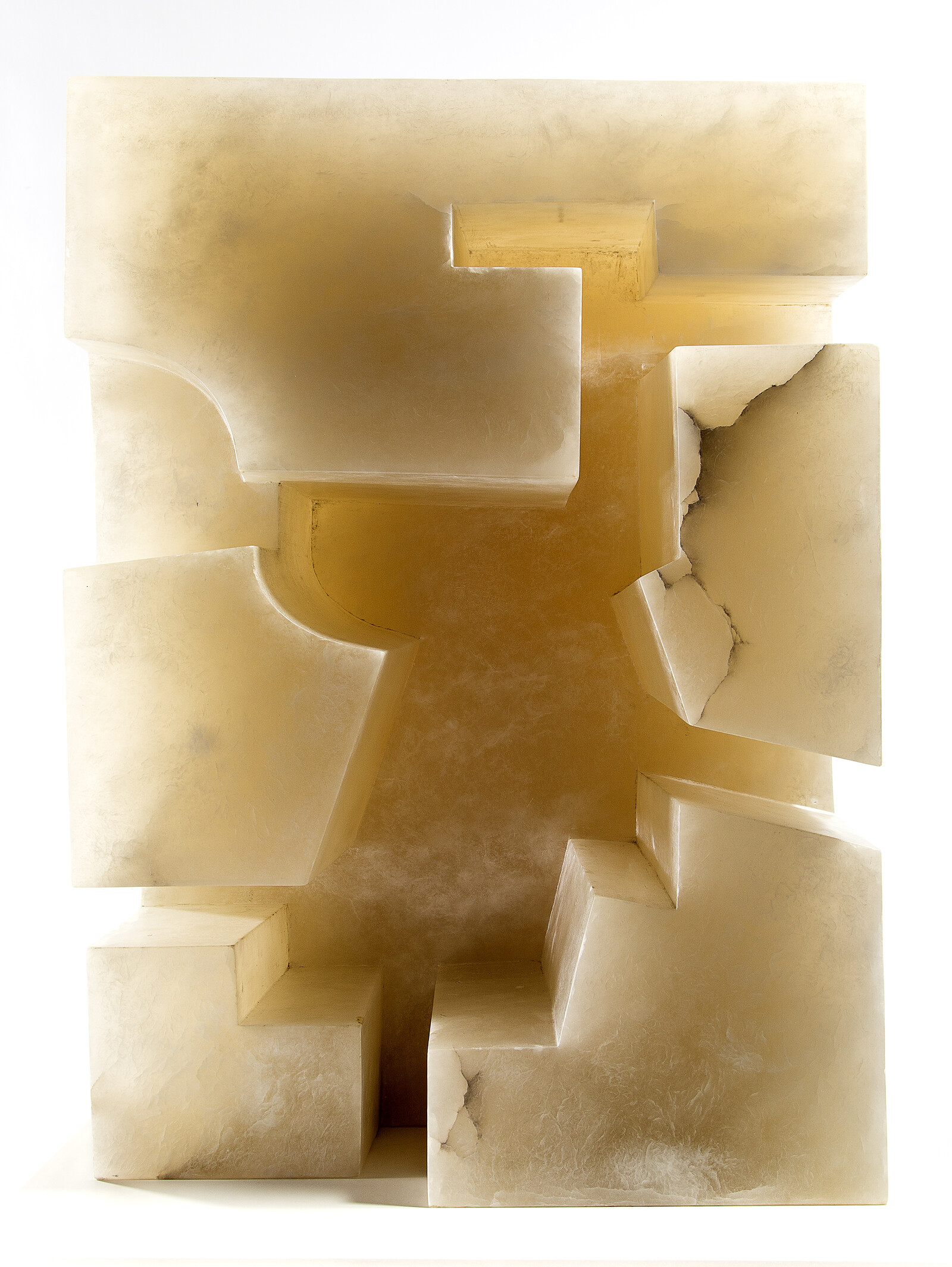Zero Gravity
April 6–August 26, 2018
76 allées Charles de Fitte
Les Abattoirs, Musée - Frac Occitanie Toulouse
31300 Toulouse
France
Hours: Wednesday–Sunday 12–6pm,
Thursday 12–8pm
T +33 5 62 48 58 00
lesabattoirs@lesabattoirs.org
Eduardo Chillida - La gravedad insistente
Bringing together over 60 artworks in various media the exhibition Eduardo Chillida – La gravedad insistente, running from April 6 to August 26, 2018 at Les Abattoirs in Toulouse focuses on the sculptor’s relationship to space and the gravity of materials. Devised with exceptional support from the Fundación Eduardo Chillida-Pilar Belzunce, it highlights how the Spanish artist breathed new life into the art of sculpture from the 1950s into the early 2000s.
From the early 1950s, Spanish artist Eduardo Chillida (1924-2002) contributed to the renewal of the kind of sculpture that challenged the constraints of materials. He therefore opted at the start of the 50s to create his sculptures directly with fire, in the forge, and refused the traditional duplication of sculpture in bronze. Associating wrought ironwork with modern sculpture in new and original ways, he plays on the refusal of the pedestal and encompasses the surrounding environment, particularly empty space. He thus contributed to a redefinition of sculpture that was taking place on a global scale. Consistently reflecting on sculpture’s relationship to space, Chillida thus spent nearly 20 years designing the Wind Combs, based on the Atlantic coastline, which he envisaged as a sculpture, an architectural space, and a soundscape subjected to the laws of the sea and wind, and which was finally inaugurated in 1977.
Starting with the epic tale of the Wind Combs, the exhibition presented at Les Abattoirs broaches the work of Eduardo Chillida thematically, notably via the four elements (earth, fire, wind, water). Next to the iron and metal sculptures, it notably brings together a set of white artworks by Chillida (alabaster, gravitation), as well as artworks marked by Eduardo Chillida’s concern for the notions of gravity, voids, and solids.
Pertaining to the artist’s own themes, such as the limits of space and matter or the implication of art within public space and nature, the exhibition interrelates sculptures with a selection of graphic works, including cutouts and collages that extend the experience of space and matter. A selection of posters dedicated to human rights will highlight the artist’s humanist commitments. A catalogue featuring texts by the artist and exhibition views will be published by Dilecta (Paris).
Zero Gravity
April 6–October 7, 2018
Following the long-term loan of the contemporary art collection of the Space Observatory, the cultural laboratory of the CNES (Centre National d’Études Spatiales), the two institutions are jointly presenting the exhibition, in which artists explore the spatial adventure and question the figure of the artist as cosmonaut.
While science fiction has constantly fantasised about life beyond Earth, Zero Gravity brings together artworks that are deeply rooted in the reality of space exploration. The exhibition begins with artworks from an historic contemporary collection of the 60’s on the conquest of space, including artworks designed to be installed on the moon. In the most recent works, the artists use stories by researchers, engineers, or astronauts to reinterpret the technological, popular, and political history of the space era. How does everyone, from the dreamers to scientists in their laboratory, experience their journey into space, even from Earth? At once an individual and universal dream, the quest to achieve lift off is a focal point for human adventure, giving rise to utopias and disappointments alike. It also touches on international political stakes. It ends in Zero Gravity with the Télescope intérieur, an artwork designed by Eduardo Kac to only be able to be created in space and was performed last year with the complicity of Thomas Pesquet, an astronaut who became a performer for the occasion.
Also at Les Abattoirs until August 26
Renaud Jerez, Black Mirror
Gisèle Vienne



